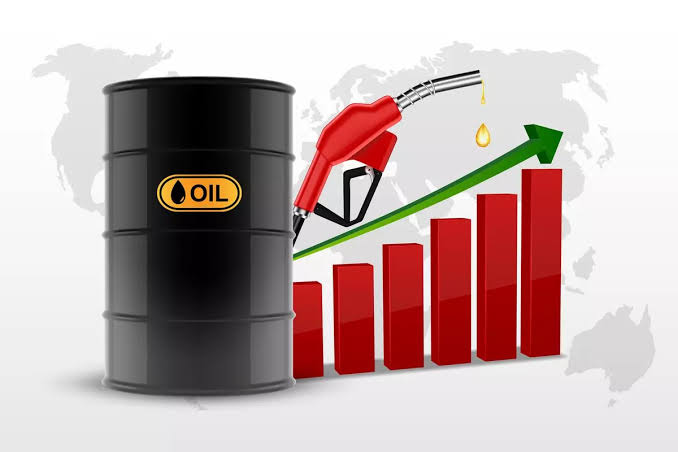Nigeria’s oil output has persistently been below OPEC quotas and budget benchmarks, putting tremendous pressure on the industry’s regulators and operators to address the unfavorable operating environment that is driving away foreign contractors and investors.
The Nigerian Upstream Petroleum Regulatory Commission, NUPRC, has released data that indicates the country experienced a production shortfall of over 3.011 million barrels in the first five months of this year, which, at an average price of $88 per barrel for Bonny Light, translates to a revenue loss of over $264.97 million (roughly N400 billion) against the backdrop of the OPEC oil production quota of 1.5 million barrels per day.
The country’s oil production has decreased to about 1.2 million barrels per day from a peak of 2.5 million barrels per day in the early 2000s, according to the findings.
According to industry analysts, the factors behind the productivity reduction are still very much within the system, and if nothing substantial is done to stop the slide, things could greatly get worse in the coming months.
According to their projections, by the end of the year, the accompanying oil income shortfall due to the production shortfall might reach N1.0 trillion, which would have drastically decreased the government’s planned N15.7 trillion in revenue for the 2024 fiscal year.
The Federal Government has already made statements that it might not make its projected revenue projection for the fiscal year because of a number of issues, including the oil industry’s poor performance.
The Finance Ministry wrote in its report, “Accelerated Stabilization and Advancement Plan (ASAP)”: “Should oil production stay 27.0 percent below budget, we may not be able to reach the 2024 budgeted income step-up of 77.4% from 2023 real.
“50 per cent of the annualised YTD (year-to-date) variance suggests a lower-than-budgeted revenue of N15.7 trillion at the current run rate.”
Even though Nigeria is the biggest oil producer in Africa, the country’s oil sector is suffering from low output due to deteriorating infrastructure and low investment in exploration and production.
Concerning the ongoing decline in oil production, officials and business leaders have stated that the problems facing the sector require immediate attention.
The nation is producing much less than its capability, according to Mr. Abdulrazaq Isa, Chairman of the Independent Petroleum Producers Group, or IPPG.
He noted that Nigeria was “in a situation where our daily production has significantly dropped and lies at about 1.3 million barrels of oil and 8.5 bcf of gas today,” despite having world-class hydrocarbon resource base with over 37 billion barrels of proven crude oil reserves and 207 tcf and 600 tcf of proven and contingent gas reserves, respectively.
Isa stated, “This is way below our capacity as a nation and by all globally acceptable standards, this reserves-to-production ratio is extremely low and a clear indicator that the industry is in a dire situation.
“In addition, we now run the risk of partial implementation of our national budget considering an estimated deficit of 400,000 bpd from the forecasted 1.78 million bpd.
“This trend in production portends another frightening dimension when we consider that in the not-too-distant future our overall installed domestic refining capacity, currently closing in on about 1.2million barrels per day, may soon outstrip our current crude oil production level with the risk of Nigeria finding itself in a position where it is unable to meet its domestic refinery crude demand or even become a net importer of crude oil.”
He enumerated the top four issues that need to be resolved in order to increase oil output and reach the government’s goal.
According to him, a national value-retention strategy will be adopted, all outstanding IOC divestment transactions, including those involving its member companies, Seplat, the Renaissance Consortium, and Oando, will be resolved, deepwater development issues will be cleared up, especially with regard to the competitive fiscal regime being negotiated with Shell, Total Energies, ExxonMobil, and Chevron, and Nigeria’s gas resources will be developed to spur economic growth and support the decarbonization drive.
These difficulties, according to Mallam Mele Kyari, Group CEO of NNPC Limited, have driven away foreign contractors as well as investors, revealing that just one foreign contractor was currently operating in the deep water.
Kyari also said that the low number of active rigs in the Nigerian environment was a result of a lack of activity and new projects. He mentioned the antiquated pipeline network as one of the main obstacles, but he also mentioned lack of investment and oil theft as other limiting issues.
According to him, NNPC spearheaded the effort to get the two export pipelines to Excravos and Bonny completely replaced.
“We are talking about increasing production but rigs come here, stack up in deep water and they drill one well and leave. This is why there are no guarantees around rigs in this country.
“Nobody will come here, mobilize for one week and leave. That’s why you are seeing the scarcity of the right rigs coming into the country.
“We have also taken another step, we will set up a rig share club with our partners. So that everyone can put on the table drilling programme so that we can all align and when rigs come here they can stay three to five years. Then we can be sure that the trend in production can increase.” Mele stated.
He bemoaned that it was not occurring in Nigeria since many individuals had converted the procurement process into a business, explaining that the technique was what was available in many jurisdictions.
Mr. Jim Swartz, Chairman and Managing Director of Chevron Nigeria, on his part, emphasized that deepwater operations are highly risky and costly, and he urged the government to take greater action to entice projects into Nigeria’s deepwater.
He noted that investment will only flow to jurisdictions where costs are cheap and contracts are upheld, saying that the problems of cost and the drawn-out project procurement cycle needed to be solved immediately.
Speaking about the measures taken by President Bola Tinubu’s administration to enhance the business climate, Mrs. Olu Verheijen, Special Advisor to the President on Energy, stated that the three Executive Orders released in February 2024 were a significant advance for the sector.
The following three Executive Orders went into effect on February 28, 2024: the Presidential Directive on Local Content Compliance Requirements, the Oil and Gas Companies (Tax Incentives, Exemption, Remission, etc.) Order, 2024, and the Presidential Directive on Reduction of Petroleum Sector Contracting Costs and Timelines.
According to Verheijen, the orders will boost confidence and the economy by enhancing the Nigerian environment’s attractiveness for energy investments.
She said the first order was, “establishing a clear and transparent regulatory framework. A stable regulatory environment and clearly defined agency roles are crucial to unlocking our untapped potential as an industry and making it more transparent, efficient and competitive now and in the future.
“The second directive is focused on providing fiscal incentives for oil and gas projects and making us more competitive for investments. Directives 40 and 41 offer incentives for midstream gas utilisation, projects and non-associated gas projects.”
The government is “working on new fiscal incentives that will facilitate deepwater projects will be critical to Nigeria’s four million barrels per day target,” the official said, adding that the government has also completed a thorough assessment of Nigeria’s deepwater competitiveness compared to 13 peer countries to attract investments.
In an attempt to increase activity and enhance output, NUPRC has added 17 more deep offshore oil blocks to the 2024 oil bid round, for a total of 36 blocks available for purchase. The country’s reserves and oil output are anticipated to rise with the acquisition of the blocks situated deep offshore, over the continental shelf, and across the onshore Niger Delta.
Along with an additional seven deep offshore blocks from the previous year’s bid round, NUPRC revealed 12 new acreages in April for the 2024 bid round.
The commission reopened the commercial bid for the 2022/2023 licencing round in a document recently produced and signed by Chief Executive, Engr Gbenga Komolafe. The document was titled “Nigeria oil block licencing round: Updates on 2022/2023 and 2024 licencing rourounds
According to Engineer Komolafe, the reopening was done so that investors could benefit from better fiscal incentives that President Bola Tinubu—who also serves as the nation’s minister of petroleum resources—approved.
Speaking on the subject, Henry Adigun, an expert in oil and gas administration, claimed that a number of problems with Nigeria’s environment had caused investors to flee the nation.
He insisted that in order to restore confidence to the industry, the nation needed to address oil theft and pipeline damage.
“The government has a lot to do to improve incentives and get the majors investing again. We need a lot of production to meet domestic demands and also for export.”




